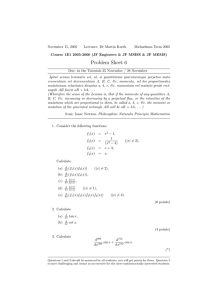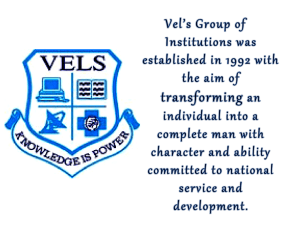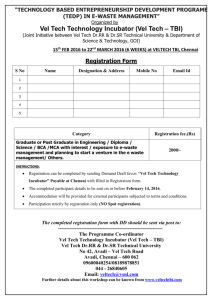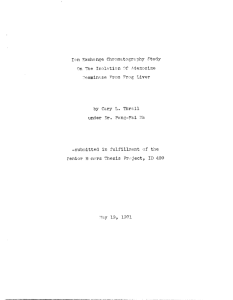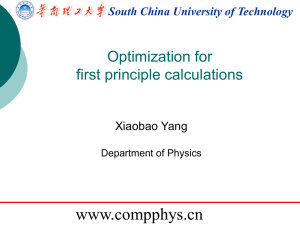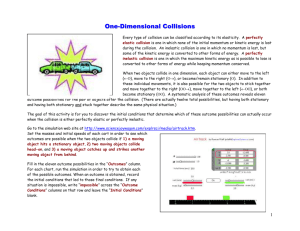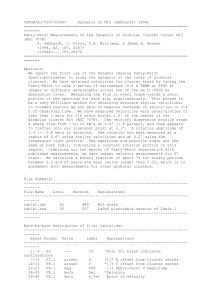Document 11591985
advertisement
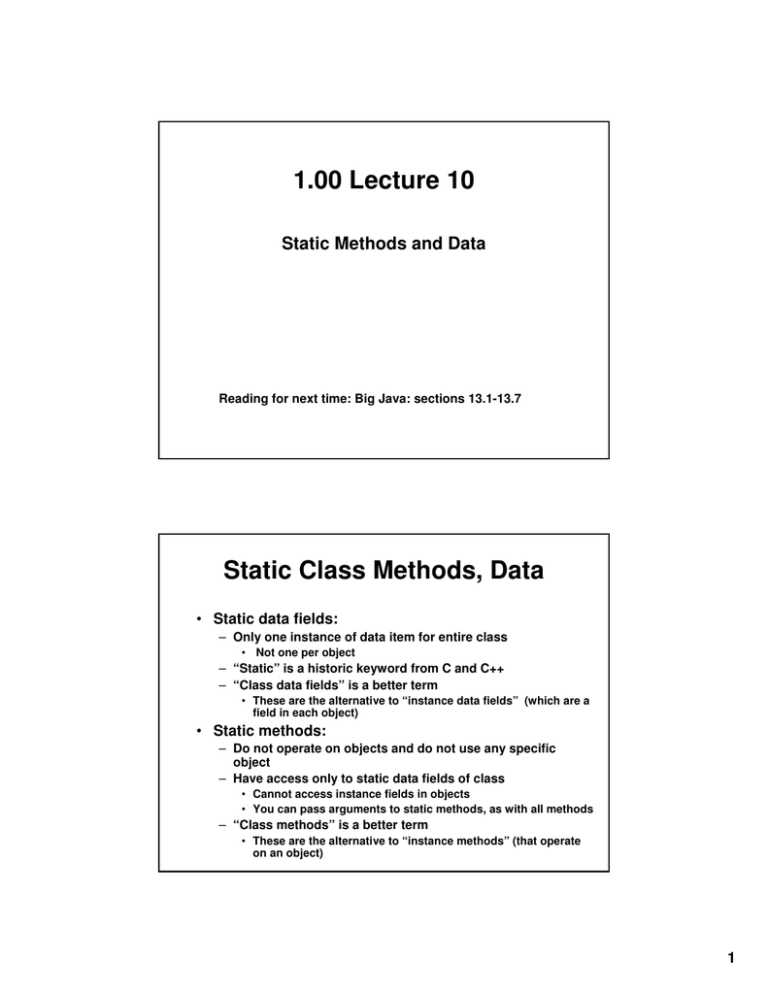
1.00 Lecture 10
Static Methods and Data
Reading for next time: Big Java: sections 13.1-13.7
Static Class Methods, Data
• Static data fields:
– Only one instance of data item for entire class
• Not one per object
– “Static” is a historic keyword from C and C++
– “Class data fields” is a better term
• These are the alternative to “instance data fields” (which are a
field in each object)
• Static methods:
– Do not operate on objects and do not use any specific
object
– Have access only to static data fields of class
• Cannot access instance fields in objects
• You can pass arguments to static methods, as with all methods
– “Class methods” is a better term
• These are the alternative to “instance methods” (that operate
on an object)
1
When to Use Static Data
•
Variables of which there is only one for a class
–
For example, the next ID number available for all MIT students
(assuming they are issued sequentially). In a Student class:
private static int nextID=1;
nextID=1; // 1
// 1
private int ID;
public static int getID()
getID() { return
private String name;
// 1
value per class
value per instance
nextID++;}
nextID++;}
value per instance
…
•
Constants used by a class (final
final keyword)
–
Have one per class; don’t need one in each object
public static final int MAX_TERMS_AS_STUDENT= 16;
public static final double ABSOLUTE_ZERO= 273.0;
–
If ABSOLUTE_ZERO is in class Temperature, it is invoked by
–
–
Constants are all caps by tradition (C, C++)
Static variables in C, C++ are different than in Java
double tKelvin=
tKelvin= Temperature.ABSOLUTE_ZERO + tCelsius;
tCelsius;
When to Use Static Methods
• For methods that use only their arguments and thus
don’t need an object for member data
public static double pow(double b, double p)
// Math library, takes b to the p power
//
• For methods that only need static data fields
public static int getID()
getID() { return nextID++;}
nextID++;}
// nextID is a static variable (see prev page)
//
• Main method in the class that starts the program
– No objects exist yet for it to operate on!
• All methods in C are like static Java methods, since C
has no classes/objects; C++ has both Java-like and Clike methods
2
Exercise
• We’ll experiment with whether rail locomotives
have enough power to haul a train at a given
velocity
Force
Resistance: static friction, rolling friction, air
Decreases
with velocity
Increases with velocity
Locomotive
Locomotive force limited
by horsepower, adhesion
All cars alike (same weight)
Exercise
• Declare a class Train (Eclipse: File->New->Class)
– Create one public constant: gravity g= 9.8
– You’ll finish this class later
• Declare a class Engine (Eclipse: File->New->Class)
– Variables
• Mass
• Power
• Coefficient of friction mu (0.3), a public constant for all engines
– Constructor, as usual. How many arguments does it have?
– getMass() method
– getForce() method with one argument, velocity
• f1= power/velocity
• f2= mass * g * mu
• Return the minimum of f1, f2
(limit of engine horsepower)
(limit of adhesion to rail)
(use Math.min)
• Save / compile
3
Exercise, p.2
• Write a static version of getForce() in class Engine
– Supply all needed variables as arguments
– Used by other classes that don’t want to create an Engine
object
– Method overloading:
• We can have multiple methods with the same name as long
as they take different arguments.
• We cannot have two methods that differ only in return type
• Overloading is general; it’s not related to static vs instance
Exercise, p.3
• Write class Car (Eclipse: File->New->Class)
– Two private variables:
• A single mass for all cars
• Car type (coach, snack, first-class)
– Constructor. How many arguments does it have?
– Set and get methods for the single car mass
4
Exercise, p. 4
• Finish class Train
• Data members:
–
–
–
–
–
–
Gravity g
(already defined)
Constant c1= 0.00015 (rolling resistance)
Constant c2= 110.0
(air resistance)
One engine (object)
Number of cars (int)
(Which data members are static?)
• Constructor
– What variables does it set?
• Method getNetForce, with one argument: velocity
– Compute weight= g*(engine mass + no of cars * car mass)
– Compute net force= engine force - c1*weight*v - c2*v*v
– Return net force
Static data and methods
// In a main() method you’ll write next:
// 1st mention of Car creates its static data
Car.setAvgMass(50000);
Car c1= new Car(“coach”);
Car c2= new Car(“first class”);
0 50000
coach
c1=
Car
0 50000
Car
Valid method calls even
if no Car objects exist:
Car.get/setAvgMass()
Car.get/setAvgMass()
Car
Valid method calls:
c1.get/setAvgMass() // Static
c1.get/setCarType() // Instance
0 50000
first class
c2=
Car
Car
Valid method calls:
c2.get/setAvgMass() // Static
c2.get/setCarType() // Instance
5
Exercise, p.5
• Download TrainTest and add one line to it:
public class TrainTest {
public static void main(String[] args)
args) {
Engine r34= new Engine(90000, 5500000);
// 90 tonnes,
tonnes, 5500 kW
double vel=
// 30 m/s, 70mph
vel= 30.0;
// Instance method
double force34= r34.getForce(vel);
// Static method
double f34= Engine.getForce(vel,
Engine.getForce(vel, 90000, 5500000);
// Don't need to create Cars. All we need is their mass
// But we must set their mass: do it here
// Train
Train amtrak41= new Train(r34, 10);
// Instance method
double force41= amtrak41.getNetForce(vel);
// Static method (if you had time)
double f41= Train.getNetForce(vel,
Train.getNetForce(vel, 10, r34);
}
}
Solution: 2 engines, 2 trains
public class TrainTest3 {
// Solution with two trains, two engines
public static void main(String[] args)
args) {
// Engines
Engine r34= new Engine(90000, 5500000);
// 90 tonnes,
tonnes, 5500 kW
Engine w96= new Engine(120000, 4000000);
double vel=
// 30 m/s, 70mph
vel= 30.0;
// Instance methods
double force34= r34.getForce(vel);
r34.getForce(vel);
double force96= w96.getForce(vel);
w96.getForce(vel);
// Static methods
double f34= Engine.getForce(vel,
Engine.getForce(vel, 90000, 5500000);
double f96= Engine.getForce(vel,
Engine.getForce(vel, 120000, 4000000);
// Can't and don't need to create Cars, but set their avg wgt here
Car.setAvgMass(50000);
// Trains
Train amtrak41= new Train(r34, 10);
10);
Train amtrak171= new Train(w96, 10);
10);
// Instance methods
double force41= amtrak41.getNetForce(vel);
amtrak41.getNetForce(vel);
double force171= amtrak171.getNetForce(vel);
amtrak171.getNetForce(vel);
// Static methods
double f41= Train.getNetForce(vel,
Train.getNetForce(vel, 10, r34);
double f171= Train.getNetForce(vel,
Train.getNetForce(vel, 10, w96);
}
}
6
Variable Lifecycles
• Instance (or object) variables
– Created when their containing object is created
– Initialized to default if not explicitly initialized
• 0 for numbers, false for boolean, null for objects
– Destroyed when Java garbage collector finds there are no
remaining active references to object
• Static (or class) variables
– Created when class is first used in program
– Initialized to default if not explicitly initialized
• 0 for numbers, false for boolean, null to objects
– Usually exist for rest of program (unless unloaded)
• Local variables (or block variables)
– Created in the statement where they’re defined
– Not initialized by default. Contain unpredictable data
– Destroyed when block is exited (at ending brace )
7
